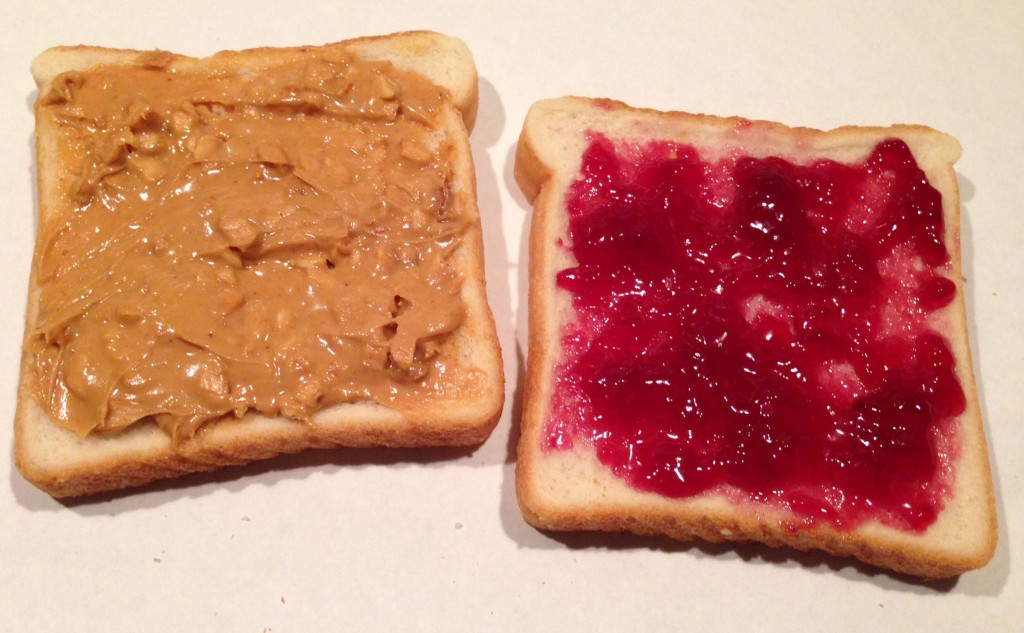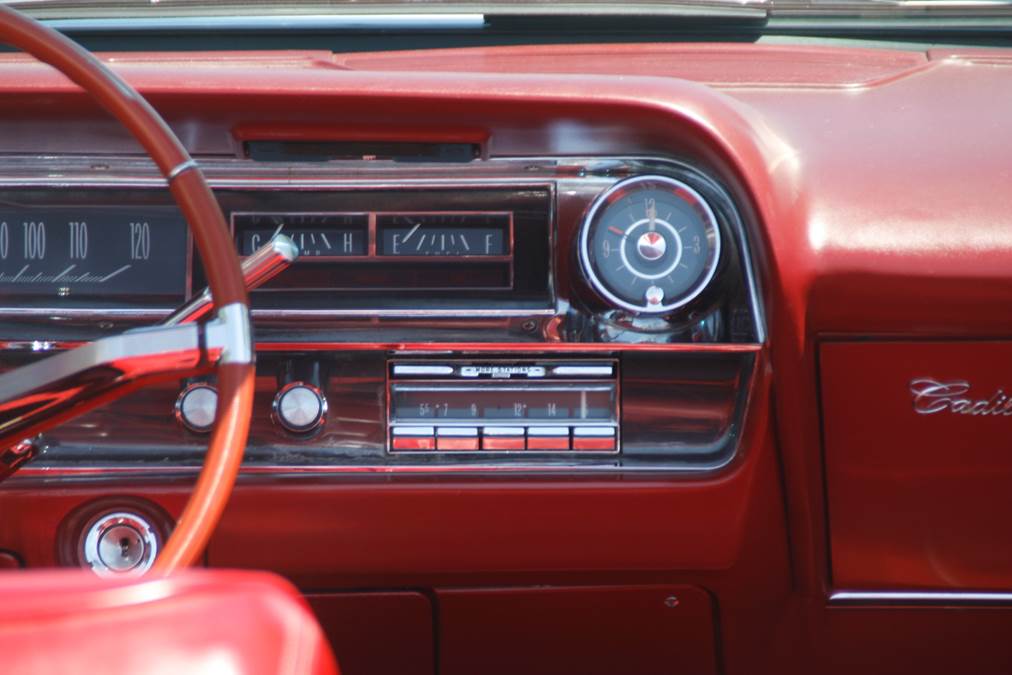As most of you know, our company has been one of the lead partners in creating the DASH Conference, which has taken place here in Detroit the past three years. I like to describe DASH as a mash-up of the radio and automotive businesses, where executives from each industry come together to share ideas and learn from one another.
One of the benefits of putting on DASH, as well as attending CES and other car conferences, is that the more time you spend with auto executives, the more you begin to understand their mindsets. And over time, we have gained a deeper appreciation of the challenges they face, as well as the adapting they must do in order to stay relevant for decades to come.
If you think about it, these two businesses go together like…peanut butter and jelly. (Or when I spoke at Radiodays a couple of years back in Dublin, I likened the relationship to roast beef and Yorkshire pudding.)
In the context of the past five years, here are some of the key things American radio and the auto industry have in common:
1. They are both highly profitable legacy industries – Both cars and radios achieved mass popularity in America during the early part of the 20th century. And despite challenges through the years, the auto industry (the oil crisis, foreign cars) and radio (the advent of television and the Internet) have survived and thrived.
2. They are a part of the fabric of society – One of the exciting things about working in either industry is the knowledge that your product has been an integral part of people’s lives. And not just a small part. Powerful memories of first cars, favorite radio stations, and great morning shows are common to millions of Americans.
3. They have been guilty of taking their supremacy for granted – Like many monopolistic industries that became essential parts of American culture, there’s that tendency to laurel rest. That attitude damaged U.S. automakers when foreign invaders like Honda and Toyota stormed the market. And the same held true for radio, especially during the early years of consolidation, coupled with the rise of the Internet.
4. They do not play particularly well with their competitors – It’s a fact of life the automakers have had a tendency to be insular, with a tendency to create and propagate their own cultures. True alliances between auto companies is a rarity, which has been especially the case in the “connected car” space. So, too, in radio where some of the biggest broadcasters are the least likely to work together or collaborate with one another. Neither industry does an especially good job of “speaking with one voice.”
5. They are facing millions of Millennials who aren’t as interested in their products as older generations – The harsh reality that Generation Y is truly cut from a different cloth than their parents or grandparents has hit home. Both automakers and radio operators are watching them gravitating away from their respective businesses.
6. Their basic business models are being rocked by digital technology – In both automotive and radio broadcasting, the digital wave has hit…hard. Automotive engineers and their counterparts in radio realize that automatic braking systems and transmitters are still paramount to their operations. But digital technology has forever changed both businesses, necessitating looking at both through a much different lens. It has required both automotive and radio to seek out new employees with skill sets that have had nothing to do with their businesses historically. This has meant merging a new culture of digi-heads with the traditional values of long-time staffers.
7. They are facing new competitors they never imagined – Just a few short years ago, the automakers couldn’t have foreseen duking it out with Elon Musk, Apple, and Google, while radio was slow to understand challenges posed by Pandora, Spotify, and SiriusXM. In retrospect, it was easier competing against General Motors and Clear Channel.
8. They are faced with embracing some of the disruptive forces that threaten them – The automakers are now looking at disruptors from Lyft to Apple as partners, just as broadcast radio companies have begun to put together deals and investments in streaming and podcasting.
One thing is for sure – things aren’t what they used to be. And that’s why it’s fascinating for our company to watch what many automakers are now doing to face these challenges, while wondering whether radio couldn’t go down a similar road.
This is not to say the auto industry has it all figured out, because many of their executives will tell you that these next five years are as impossible to predict as the previous five.
But that isn’t stopping most of them from placing numerous bets on experimentation and innovation, not all of which will pay off. It isn’t stopping them from conducting research among Millennials to discover how their mindset changes impact their legacy business. It isn’t stopping them from hiring more talent from the tech industry. And it certainly isn’t curtailing the search for ongoing partnerships that can lead to expansion, understanding, and growth.
To be fair, the radio industry is doing some of these things, with a less secure financial foundation, and more limited resources. But if radio is looking for an example of what it takes to retrofit a legacy business and help ready it to face an unsure future, it’s the auto industry – and even local car dealers down the street – that are confronting these challenges head-on.
As Wes Lutz, a Michigan-based car dealer told radio execs at DASH last November that when it comes to industry-wide disruption and change, “We are just like you.”
Peanut butter and jelly.
I’m excited to tell you I’ll be participating in a “connected car” panel at Radiodays in March, set for Paris. Information here. Vive la radio!
- Why “Dance With Those Who Brung You” Should Be Radio’s Operating Philosophy In 2025 - April 29, 2025
- The Exponential Value of Nurturing Radio Superfans - April 28, 2025
- What To Do If Your Radio Station Goes Through A Midlife Crisis - April 25, 2025






Great take as always. One thing radio must remember is that in order to stay relevant on the digital dash is we MUST remain relevant – live & local content, coverage of breaking news, and the all important elements (time, weather & traffic) can’t be dismissed or forgotten.
In these days where revenue is tough to come by, programmers cannot forget that “content is king” and sales cannot forget that content can be quite sellable. Radio must also do a better job of reaching younger audiences, especially for spoken work formats.
Also, let’s not worry much today about driverless cars. They are well over a decade or more away. Radio must start winning battles now if we want to win the digital dash war.
Bottom line is there are some great sites that entertain (Pandora and others) but they do not inform, and radio’s “inform & entertain” mantra is what can keep it relevant – and profitable – as the digital dash moves forward.
Good thoughts all, Jeff. Thanks for reading our blog & commenting.
Baseball and Ballantine! Stan & Ollie. Bacon & eggs. Another home run for Fred! Mobile was always a car radio and Digital is the new, clean delivery. Content, curation, presentation. Plenty of new ways to tune-in. Never enough new shows to love. Appeal is viral, instant and delivers the money. Clark, Boston. http://www.broadcastideas.com
Always appreciated, Clark? Thanks for the kind words.
“…the radio industry is doing some of these things, with a less secure financial foundation”
It could be argued that the reason the auto industry is on more secure financial footing is that they did “those things” and built cars that people really love.
There are two big radio broadcasters who don’t have the financial bandwidth to do much if any investment (iHeart and Cumulus) but most of the others have improved their finances to the point where they could. Mqybe hiring some people who helped engineer the US auto comeback might be a good idea for radio – as you point out there are a lot of similarities and sometimes a relatable outside perspective can be helpful.
There’s a lot to be learned from what the autos are doing. They have their issues, as we pointed out, but they are also aggressively chasing the disruption and finding ways to make it work for them. Thanks for the comment and observations, Bob.
Fred, I almost Tweeted at you last night when I was watching TV and a commercial for the new Accord came on followed by one for Volkswagen. One of the selling points for the Accord was that Pandora would provide a soundtrack for your drive and featured their logo not just in the dash but separately on the screen. The Volkswagen commercial was all about integrating your phone seamlessly with the car.
Radio and the auto industry certainly have a lot in common lets hope the relationship gets stronger through new collaborations.
Thanks for the kind note, Sean. Clearly, the automakers see dollar signs when they market in-dash entertainment. Thanks for reading our blog.